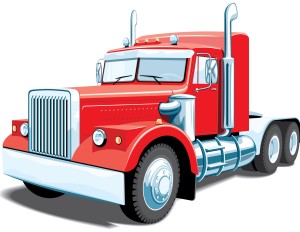
The legal blood-alcohol limit in Minnesota and across the United States is 0.08, but that only applies to your average Joe. For people who drive for a living or who are tasked with driving heavy machinery, the legal limit is usually much lower. These drivers are required to carry a commercial driver’s license, and because of their duties and the cargo they tow, they are held to a higher standard. Read on to learn more about how Minnesota views drunk driving in a commercial vehicle.
What is a Commercial Vehicle?
A commercial vehicle is used to transport people or property, but it also has some other characteristics. If the vehicle has any of the following features, it’s considered a commercial vehicle.
- It has a gross weight of more than 26,000 pounds.
- It’s a bus or a school bus.
- It’s a vehicle of any size that’s being used to transport hazardous materials.
Anybody tasked with moving people or heavy/hazardous material is tasked with a larger responsibility than your average driver, and they need to obtain their commercial driver’s license (CDL) in order to operate a commercial vehicle. Similar to a normal driver’s test, the CDL test requires hours of practice and drive time with the large vehicles before someone can obtain their license. Transporting hazardous materials needs to be handled with the utmost care, so using things such as Storemasta Chemical Containers for transportation can be highly beneficial and safe.
CDL Drunk Driving Penalties
Even the smallest amounts of alcohol have an effect on a person’s body. At some point in your life, you’ve probably gotten behind the wheel after a beer or two, and while you weren’t legally intoxicated, you might have felt ever so slightly affected by the alcohol. Even small amount of alcohol can delay reaction times and motor functions, which is why CDL drivers are held to a much stricter standard when it comes to acceptable blood-alcohol content.
Under Minnesota law, the legal blood-alcohol limit for anyone operating a commercial vehicle is 0.04. That said, if you’re driving a school bus, the presence of any alcohol in your system is illegal. For a first offense CDL DUI, a person can expect to lose their CDL license for at least a year. For anyone who earns a CDL DUI while transporting hazardous materials, they can have their license disqualified for up to three years. Any subsequent offense will result in a 10-year CDL disqualification.
Obviously, if your job depends on you having a commercial driver’s license, the loss of your license can also mean the termination of your employment. Assuming the driver was below the 0.08 threshold, they will still maintain their normal driver’s license, but if they blow above 0.08, they may also face regular motor vehicle DUI penalties.
Because a DUI involving your CDL can cost you your license, your job and your means to provide for your family, it’s clear that you should seek out an expert to help fight the charges on your behalf. We take these charges very seriously and will fight as hard as we can for you because we know exactly what’s on the line. If you are at risk of losing your CDL license in Minnesota, contact us today for a free consultation to discuss your options.





